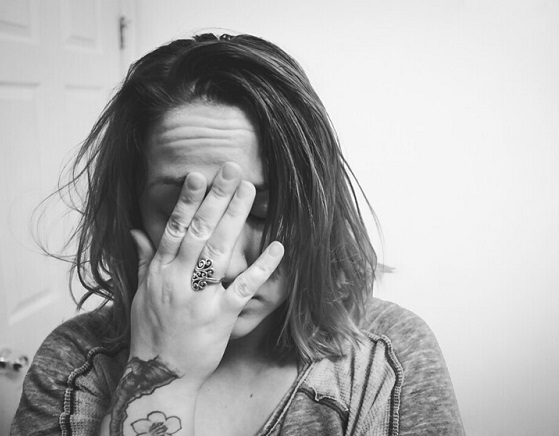4 Truths I Learned From a Chronic Illness in My 20s.

{source}
“You’re young and healthy though!” If I had one wish, I would never want to hear those words again.
Youth typically denotes positive well-being, but for those in the chronic illness community, a lack of wrinkles can be more of a curse than a perk.
From few available resources to misconceptions from society and doctors, people who get sick young face an uphill battle. It’s one thing to have the type of disorder for which a “get well soon” makes sense. It’s quite another to have a condition that may never heal.
1. American Healthcare Desperately Needs Reform
I’ll spare you my laundry list of conditions. However, despite my disabilities, I haven’t always enjoyed access to care for two primary reasons. The first? The U.S. remains the only industrialized country without some form of government-guaranteed healthcare coverage.
The other? Despite a lack of coverage from the feds, less than half of all employers offer healthcare coverage to their workers. Let’s ignore the glaring problem faced by those too sick to work momentarily. People who remain in the labor force often have no way to get the care they need to perform at their best.
This absence of needed medications and treatments leads to substandard performance and, all too often, dismissal.
I’m far too young for my resume to resemble Swiss cheese, but it does. Falling chronically ill in your 20s disrupts your entire career trajectory. Perhaps you can work with accommodations, but I’ve often hesitated to ask for them out of fear of retaliation. Maybe you can partially perform your old duties, but usually not long or consistently enough to earn sufficient income to keep yourself fed.
Our society has shifted the burden of providing coverage from the group — at the employer or federal level — to the individual. However, the individual can hardly defray these costs, especially if they’re not feeling well. Is it any wonder that folks in the U.S. pay more for care but enjoy poorer outcomes?
2. People Will Regard You With Skepticism
Do you have a handicapped plate on your vehicle? If so, you may have encountered your share of less-than-pleasant individuals who assume you take advantage of someone else’s. Heaven forbid you’re that one in four of 18 to 44-year-olds with a hearing aid. People give you guff about needing it — they never heard of issues caused by loud headphones? Congenital conditions?
Even your doctor may express skepticism about your pain levels, particularly if you identify as female. In fact, more than 83% of women with chronic pain say they faced discrimination from their physicians — I’m one of them. This bias can have devastating effects. Even though heart disease remains the number one killer of women, ER doctors sometimes overlook the symptoms women experience with fatal results.
3. Unfortunately, You Learn to Live a Lie
How many times have you responded, “I’m great, thanks,” when someone asks how you’re doing, even when you feel like death-warmed-over? When you have a chronic illness, this reply becomes a knee-jerk reaction, even though inside, you may feel guilty for not speaking anything close to the truth.
It might comfort you to know that different types of lies exist, and most members of the chronic illness community tell the occasional self-preservation variety of fib. For example, many of us go to substantial lengths to hide the severity of our illnesses from our employers. Even if your current supervisor seems sympathetic, you grow more than a little bit shy.
Smiling and pretending everything is okay becomes a finely-honed defense mechanism.
4. Ableism Is Real, and Very Much Alive
Even the most open-minded individuals struggle to wrap their heads around the reality of those of us with chronic illnesses. The misunderstanding grows even more vast if you have an invisible disability. How can you explain how you can practically run up a mountain one day, but barely drag yourself to the bathroom the next?
I often compare the way my conditions make me feel to having the flu. However, this analogy isn’t entirely accurate because people recover from temporary illnesses. The reality is, if you can do a task one day, non-disabled folks will expect you to perform equally well the next, regardless of your truth.
Turn down one too many RSVPs due to feeling under the weather? Guess who doesn’t get an invitation to the next soiree? It hurts to have former friends ghost you, but that’s what often happens. Even if you tell them that you want to get involved despite your limitations, they often misinterpret your declines as a lack of interest. Having a chronic illness in your 20s can make you unbearably lonely.
Please, Show Those With Chronic Illnesses Respect and Love
If you’re chronically ill in your 20s, I know all too well how your struggles impact your life. If you’re a member of the non-disabled community, please show those of us with these conditions some love, and, if you can’t muster that emotion, at least some respect. Our bodies may not function as yours do, but that doesn’t mean we don’t have human needs and feelings, just like you.
